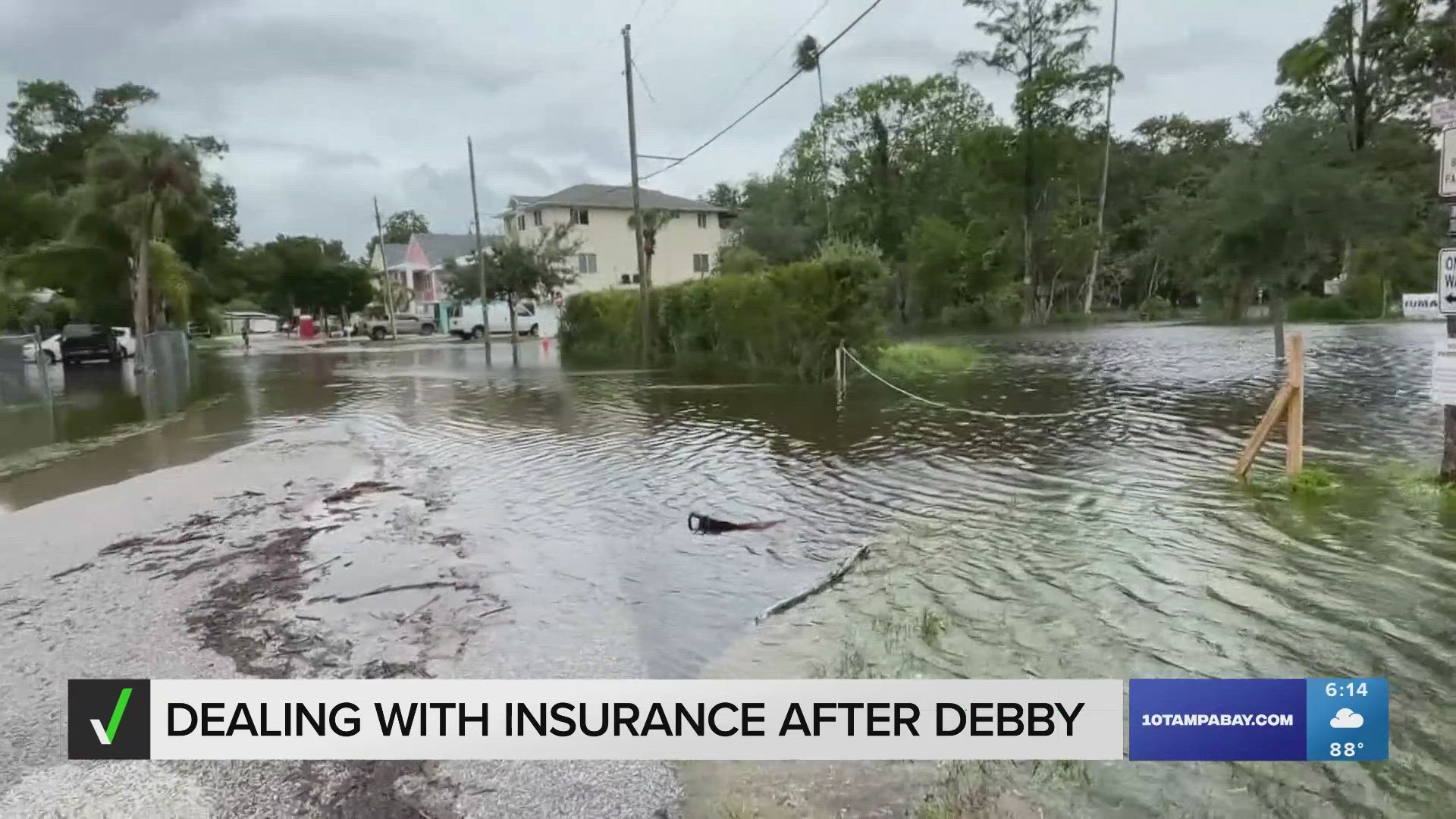TAMPA, Fla. — Hurricane Debby dumped a foot or more of rainfall in some areas of Tampa Bay, causing damage and flooding.
VERIFY went to the experts for advice on filing insurance claims to get your questions answered.
THE SOURCES
- Mark Friedlander, Insurance Information Institute (III)
- Jimmy Patronis, Florida Chief Financial Officer
- Florida Division of Emergency Management
- Federal Emergency Management Agency (FEMA)
- Insurance companies Progressive, American Family Insurance, Amica
- Better Business Bureau (BBB)
THE QUESTION
Do homeowners and renters insurance policies cover flood damage?
THE ANSWER
No, homeowners and renters insurance policies do not typically cover damage from flooding.
Instead, homeowners and renters can purchase separate policies through a private insurer or the federal government, according to the Insurance Information Institute (III) and the Federal Emergency Management Agency (FEMA).
Standard homeowners and renters insurance policies usually only cover water damage from sources inside the home, like leaks or burst pipes, insurance companies Progressive and American Family Insurance say.
The National Flood Insurance Program (NFIP), which is managed by FEMA, contracts with insurance companies to offer flood insurance policies. Some private insurers also offer their own flood insurance policies, which may provide higher coverage than those issued by the NFIP, according to the III.
Amica Insurance says there can be a 30-day waiting period before a flood insurance policy goes into effect.
THE QUESTION
Does auto insurance cover water or storm damage?
THE ANSWER
No, water or storm damage is not typically covered under a basic auto insurance policy.
If your vehicle gets flooded, you won’t be covered unless you have comprehensive coverage, according to Mark Friedlander with the Insurance Information Institute (III). Comprehensive coverage would include any kind of damage caused by a natural disaster, as well as theft, fire and broken windshields.
This type of coverage is typically required for drivers with an auto loan or a lease agreement, said Friedland, while it’s optional for all other drivers.
Comprehensive coverage can be pricier than a basic liability policy. According to MarketWatch, in Florida, it can be more than a hundred extra dollars per month added to your premium.
If your vehicle was damage while parked in your garage or driveway, you would still file a claim with your auto insurance, not homeowners, Friedlander told VERIFY.
“Even if the car was housed literally in the garage it's the comprehensive portion of your auto policy that would cover damage,” he said. “A lot of people are very confused about that one.”
THE QUESTION
Should you file an insurance claim with someone who shows up to your home unsolicited?
THE ANSWER
No. Scammers often try to scheme homeowners into redirecting payment claims from insurance companies to them instead, warns Florida’s Chief Financial Officer Jimmy Patronis.
Patronis said his plea to Floridians is to be vigilant as bad actors will try to take advantage of people in a vulnerable state.
“These scoundrels will come in, they will give you a sales pitch, and next thing you know, you have signed over an opportunity for them to file a claim on your behalf, where they then reap all of the claim dollars,” Patronis told VERIFY.
“It's called an assignment of benefits, or directional payments, and they're essentially routing the dollars to their bank account, as opposed to your bank account.”
Scam “storm chaser” contractors might also try to do the same, offering quick fixes or big promises while lacking the proper licensing for your area, the Better Business Bureau (BBB) warns.
When hiring any contractor, the BBB recommends you contact your insurance company first, obtain estimates of the work to be done, and get everything in writing.
Before letting anyone work on your property, you can check their license with the Florida Department of Business and Professional Regulation.

